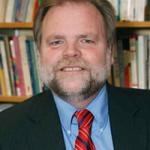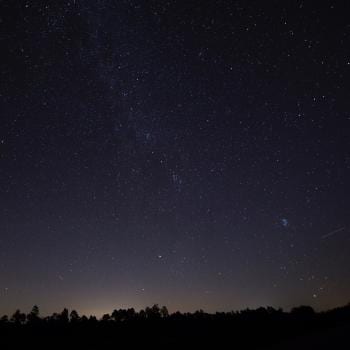The upcoming conference focusing on the “Future of Process Theology,” to be held July 24-26 in Fairbanks, Alaska, has inspired me to articulate my own future vision for process theology as it continues to interact with our postmodern, pluralistic, and increasingly interdependent world.
I have been a process theologian, amateur and professional, for nearly fifty years. I first encountered process theology as a student at San Jose State University in Richard Keady’s and Marie Fox’s classes in 1973. Looking back, I can assert that I might not be an active Christian, indeed, a theologian and pastor, apart from the impact of process theology on my understanding of God and the relationship of Christianity with other world religions. Process theology is more than an intellectual system to me; it is a way of life that shapes my ministry, teaching, politics, marriage and family life, citizenship and spirituality. The open-spirited, possibility-oriented vision of process theology has inspired me to adventure and given me courage to face adversity, trusting a way will be made when I see no way forward. For me, process theology addresses the totality of experience and provides a life-changing vision of God, the world, Christian faith, and spiritual experience.
Once upon a time, as every good story goes, I was a novice process theologian, studying with John Cobb, Bernard Loomer, and David Ray Griffin at Claremont Graduate School and Claremont School of Theology. Now, forty years after completing my doctoral dissertation, I have become a member of the older generation of process theologians, a mentor to present and future process theologians, lay, academic, and clergy. Though my process mentors remain John Cobb and David Griffin, I have claimed my vocation as a theological and spiritual artist, shaping the contours of process theology, spirituality, and ethics as a writer, pastor, professor, and mentor. I have discovered that one of my vocations over the past few decades has been to convey the wisdom of process theology ways that are understandable and convincing to laypersons and pastors, expanding the impact of process theology beyond the academic community.
In the wake of the sixteenth century Reformation, Protestant theologians proclaimed that the reformed church is always reforming. In a similar fashion, I believe that process theology is always in process, navigating its way through a changing world, innovating and adapting, and, as Alfred North Whitehead says, initiating novelty to match the novelty of the environment. I believe that the future of process theology is evolving and widening, with no and final sure destination. Faithfulness to the insights of Whitehead, Hartshorne, Loomer, Meland, Cobb, Griffin, Ogden, and others, inspires the continuing creation of theological novelties to match the shifting novelties of our time. Not novelty for novelty’s sake, but as a reflection of the call to creative transformation as a catalyst for changing the world.
As I look at the future of process theology, my perspective is that of a North American Christian process theologian, grounded in my theological-spiritual home and open to the wisdom of other paths of faith. While process theologians are always pilgrims, journeying to new lands and learning new things, my lens is that of the church, seminary, and interactions with seekers and persons of other wisdom traditions. Though rooted in the North American church, I seek to have a global vision. Christian process theologians seek the creative transformation of the church while recognizing the importance of sharing broadly articulated visions of process thought to seekers and questioners of our time.
My vision of the future of process theology can be described by the following affirmations:
• The future of process theology is global. God is the inner energy and wisdom of all creation, the principle of creative transformation giving life and growth to all things, the reality in whom we live and move and have our being. Revelation and inspiration are everywhere. God’s presence and witness is universal, thus liberating us from the parochialism of denomination, culture, and nation. Process theology invites us to articulate theologies of stature in dialogue with other wisdom traditions and the secular world. Process theology is always emerging – new every morning – learning and sharing, growing in wisdom and stature.
• The future of process theology is integrative. Holographic in nature process theology takes us beyond opposition to contrast and will continue to break down walls of separation and isolating siloes of faith and science, religion and medicine, intellect and emotion, conscious and unconscious, Christianity and other faiths.
• The future of process theology is multi-disciplinary, inviting us to find points of contact between the various academic and professional disciplines. Connection is everything, truth is relational, and what happens in the laboratory, library, archeological dig, and church are interconnected.
• The future of process theology is interspiritual. One can be profoundly Christian, rooted in the way of Jesus, and still be evolving as we embrace the gifts of other wisdom traditions, as well as atheistic and agnostic critics. Hybrid or fluid spirituality invites us to explore the spiritual practices of other faiths as well as their visions of reality, recognizing both differences as well as commonalities, and places of personal edification. The Christian faith of future must be spiritually fluid, centered on Christ, whose wisdom embraces truth in its many manifestations and pathways. Profoundly incarnational, process theology and spirituality live out John Cobb’s affirmation that Christ is the way that excludes no way.
• The future of process theology is holistic. Relational in spirit, process theology joins mind and body, cell and soul, promoting healing and wholeness at every level of life. The heavens declare the glory of God, right whales sing praises to their Creator, and the cells of our bodies vibrate with Divine Wisdom. The whole and part are connected, and this means that we need to expand the horizons of healing and spiritual experience to embrace the environment as well as global medicines, healing practices, and unexpected cures and healings.
• The future of process theology is political and liberating, challenging us to join national affirmation with global interdependence and moving us from individual and national self-interest to world loyalty. There is no “other” as we welcome the diversity of human culture and experience. Political policy, from a process perspective, promotes relationships, beauty of experience, and expanded circles of concern. Politics is about healing and wholeness embracing the interdependence humankind and the non-human world, and balances national integrity with world loyalty.
• The future of process theology is ecological, inspiring us to love the earth, reverence the non-human world, and claim our role as God’s companions in healing the earth. Process theology inspires ecological economics focusing on sustainability, relationships, and meaning. The world is an incarnation of Divine Wisdom, the body through which the Divine Spirit flows and grows, calling us to be partners and companions with all creation, seeking to heal our planet.
• The future of process theology is mystical. We are all mystics. The “sighs too deep for words” of God’s Spirit well up from with us, though we are often unaware of this ubiquitous inspiration. Awakening to the real presence of God in all creation and ourselves is at the heart of process spirituality. Process mysticism inspires us to discern God’s call in every moment and invites us to update our spiritual practices for our setting. Mysticism is holistic, and not siloed to the monastic life: mysticism inspires contemplative social transformation and prophetic healing, challenging injustice so that all can experience the fullness of God. Mysticism experiences divinity on a summer day, observing with Mary Oliver the intricate machinations of a grasshopper eating its lunch, and launches forth in appreciation and affirmation of the Holy Here and Holy Now, embedded in every moment of life.
Process theology has a future. But, with the diminishing impact of seminaries and the marginalization of process theology on many seminary faculties, we need to imagine the future in novelty ways and discover novel ways of communicating process thought in the larger society, to lay persons and professionals alike, to those within the church and to the church of the open spaces. Not bound by seminary walls or church sanctuaries, the future of process theology lies with intellectually-lively pastors, inspired laypersons, and insightful environmentalists, economists, health care providers, and innovative theology thinkers, willing to go beyond jargon and technical language to incarnate the wisdom of process theology in daily life and the intricacies of ecology, economics, and education.
+++
Bruce Epperly is a Cape Cod pastor, professor, and author of over 50 books in the areas process theology, scripture, healing and wholeness, pastoral excellence and well-being, and spirituality. His books in process theology include: “Process Theology: A Guide for the Perplexed” and “Praying with Process Theology: Spiritual Practices for Personal and Planetary Healing” and the Energion series on Process Theology – “Process Theology: Embracing Adventure with God,” “Process Spirituality: Practicing Holy Adventure,” “Process and Ministry,” “Process and Pastoral Care,” “One World: The Lord’s Prayer from a Process Perspective,” and “Process Theology and Celtic Wisdom.” He is featured on the weekly progressive-process theology podcast, “Faith on the Edge: Equipping Congregations to Face Our Century.” (https://faithontheedge.org/)













